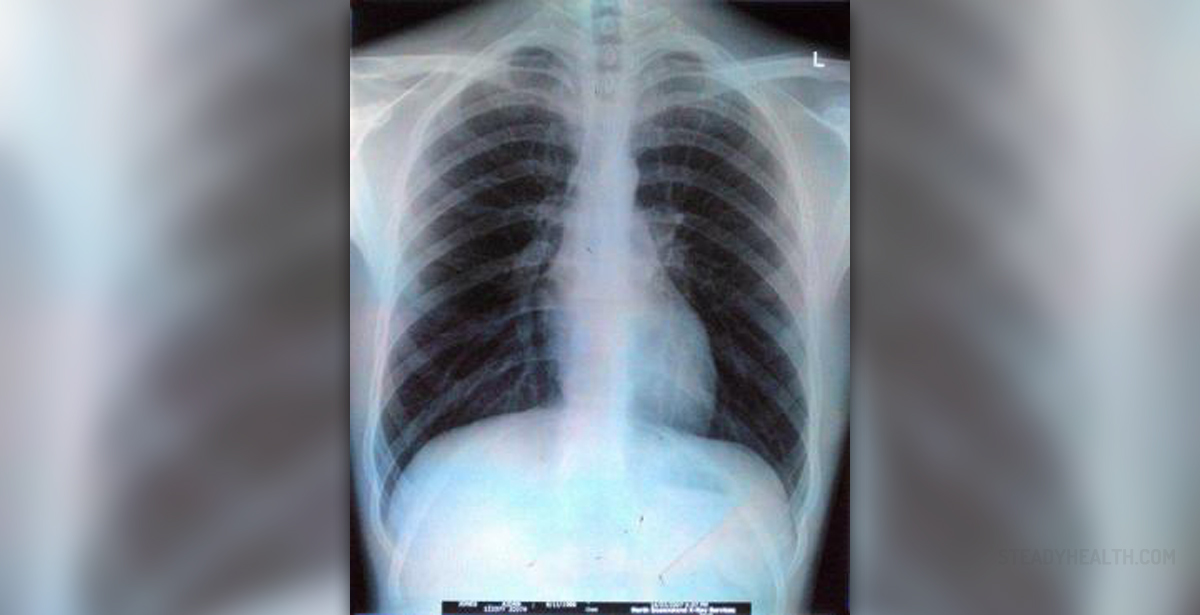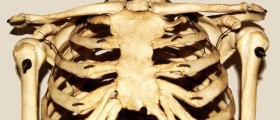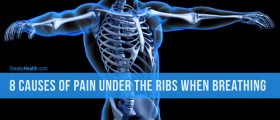
Chest Problems
Chest discomfort is usually a symptom that indicates thatthere’s something wrong with the heart or another organ near the chest. Problemswith the tendons, muscles, nerves or even ribs, esophagus or lungs can cause chesttightness and pain.
People often panic when they experience any chest ache,since most think that the only reason can be a heart attack. Yes, heart attackis a possibility, but there are many other potential causes of your chestproblems. Try not to lose control under these circumstances. You don’t want toworsen your condition, for sure, whether it is a heart attack or not.
Symptoms and Causes
Chest discomfort is in most cases experienced as pin andtightening in the chest, or heart palpitations. Patients complaining aboutchest discomfort frequently have a number of other symptoms, including: breathingdifficulties, high blood pressure, yawing, daytime sleepiness, tiredness or sometimesdizziness and even unconsciousness. There might be also a painful feeling inthe jaw or in the arms.
Many disorders and diseases may cause your chest problems. Someof the least worrying are: sore muscles, low blood red cells (anemia), altitudesickness, inflammation of chest joints, coxsackie virus infection or even panicattack.
Heart problems are also associated with these symptoms andthe conditions that might be responsible for chest discomfort are: anginapectoris, aorta coarctation, aortic dissection, myocarditis, aneurism ofthoracic aorta, mitral valve prolapsed or atrial fibrillation.
Lung problems are also a possible cause of chest discomfort.Patients suffering from asthma, bronchitis, cough, COPD (chronic obstructivepulmonary diseases), tuberculosis, pneumonia, pulmonary embolism orhypertension, pleurisy or pneumotorax might also report chest tightness andpain. Asbestos poisoning, aspergilloma, lung cancer, and lung sarcoidosis arepossible reasons behind chest problems.
People experiencing carbon monoxide or cadmium poisoning oftenreported chest discomfort. Patients who have pheochromocytoma, mesotheliom and non-Hodgkinlymphoma are susceptible to chest difficulties.
Some digestive tract problems, such as indigestion, ulcers,gallbladder problems and heartburn may also cause chest pains.
Certain medications’ (heparin, lithium) side effects includechest problems.
Treatment of Chest Discomfort
It is important to identify the cause of your chestdiscomfort and then start to treat it. Muscle soreness, coughing or heartburnusually get better after some rest, heating or warming up. If you need, takeibuprofen to relieve the pain.
Heart attack symptoms are similar to regular chest pains,but also include: squeezing in the chest and pain that transfers to the leftarm, shoulder blades and the jaw. Heart attack may also be followed by sweating,nausea, dizziness and breathing difficulties. If you feel any of these symptomscall 911 and ask for urgent medical help, since you might be experiencing aheart attack. Try to stay calm and focused until the medical help arrives,since the panic may only worsen the situation.



,-Asthma-And-Anxiety_f_280x120.jpg)













Your thoughts on this
Loading...